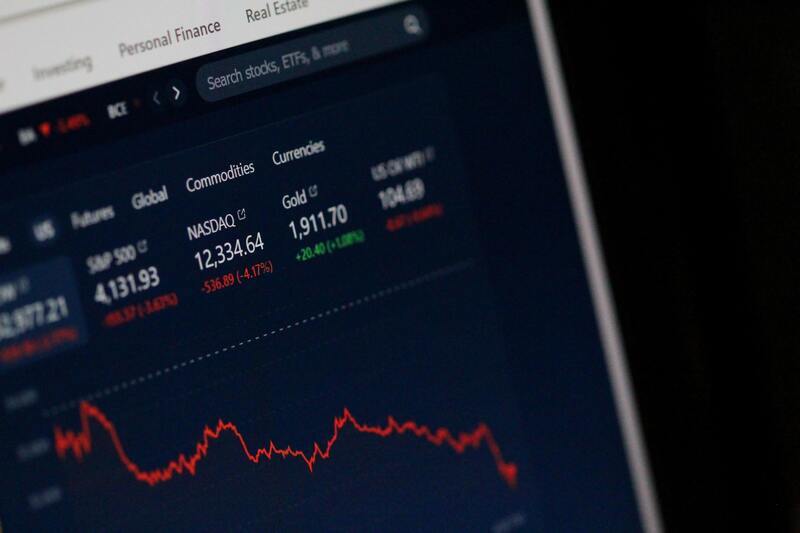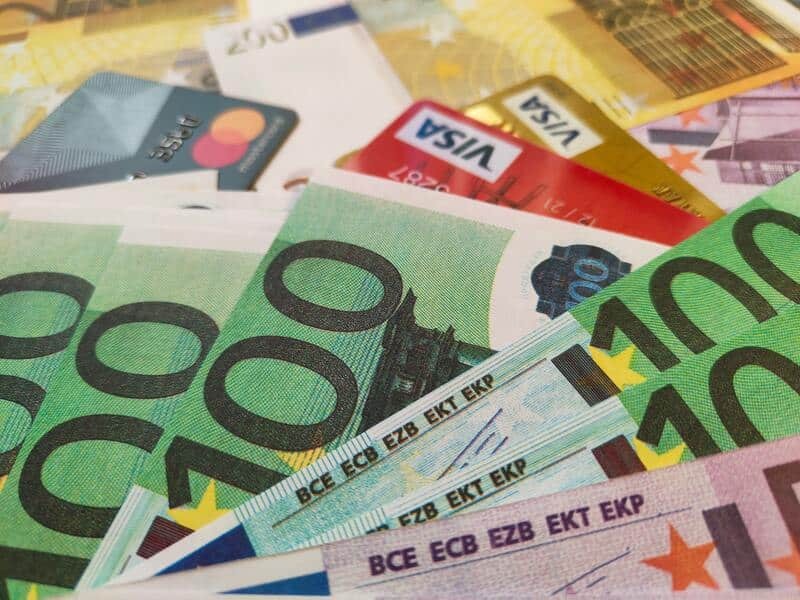Money market mutual funds in Qatar are an increasingly popular investment option for investors looking to maximize their returns while maintaining a high degree of liquidity and low risk.
The country has seen significant growth in recent years. With the economic landscape experiencing significant changes nowadays, the volatility of the markets has created opportunities for investors in mutual funds in Qatar.
Knowing which money market mutual funds are the most profitable in Qatar is critical for investors looking to maximize their returns while minimizing risk exposure. By understanding the investment strategies, performance history, and risk profiles of money market mutual funds, investors can make informed decisions about which funds to invest in based on their financial goals and risk tolerance.
This blog aims to provide Qatar investors with a comprehensive guide to the country’s most profitable money market mutual funds.
This blog will explore the various factors investors should consider when selecting a money market mutual fund, provide an in-depth analysis, and offer insights into the current market conditions and trends.
If you are looking to invest as an expat or high-net-worth individual, which is what I specialize in, you can email me (advice@adamfayed.com) or WhatsApp (+44-7393-450-837).
This article isn’t financial or any other sort of advice, and the facts might have changed since we first wrote it.
Table of Contents
What is a money market mutual fund?
A money market mutual fund is a type of mutual fund that invests in short-term, low-risk securities, such as commercial paper, certificates of deposit (CDs), and Treasury bills.
These funds aim to provide investors with a high degree of liquidity, low risk, and competitive yields. They are considered a safer investment option than stocks or bonds because they invest in short-term, high-quality debt securities.
Money market mutual funds work by pooling money from multiple investors and investing that money in a diversified portfolio of short-term, low-risk securities.
The fund manager selects the securities to invest based on their credit quality, maturity, and yield. The income generated from these investments is then distributed to the fund’s investors in the form of dividends.
The primary benefit of investing in money market mutual funds is the low level of risk. These funds invest in securities with short maturities, typically ranging from a few days to a few months, which reduces the risk of interest rate fluctuations and credit defaults.
This makes money market mutual funds a safer investment option than stocks or bonds, especially for investors with a short-term investment horizon or those seeking to preserve their capital.
Another benefit of money market mutual funds is their high level of liquidity. Investors can redeem their shares at any time without significant penalties or fees.
This makes them an ideal investment option for investors who need access to their money quickly, such as unexpected expenses.
Money market mutual funds also offer competitive yields. While they may not provide the high returns that some other investment options can offer, such as stocks, they typically offer higher yields than traditional savings accounts or CDs.
What are the key factors to consider when selecting a money market mutual fund to invest in?
There are several key factors to consider when selecting a money market mutual fund to invest in.
The credit quality of the securities the fund holds is a crucial factor to consider. High-quality debt securities, such as those issued by the government or large corporations, are considered less risky than those issued by smaller companies with weaker credit ratings.
Another important factor to consider is the expense ratio, the percentage of the fund’s assets used to cover the management fees and other expenses of the fund.
A high expense ratio can eat into your returns over time, so it is essential to consider the fund’s expense ratio before investing.
Similarly, the yield must also be considered as the income generated by the fund’s investments is expressed as a percentage of the fund’s assets.
A higher yield can indicate a more profitable fund, but it is important to consider the yield in the context of the credit quality of the securities held by the fund.
Money market mutual funds are also known for their high liquidity, but some funds may have more restrictions on withdrawals or charge fees for early redemptions. It is essential to consider the liquidity of the fund and any associated fees before investing.
Finally, the fund manager’s experience, investment strategy, and track record are all critical factors to consider when selecting a money market mutual fund.
It is important to research the fund manager’s credentials and performance history to ensure they have a solid track record of managing money market mutual funds.

What are the risks associated with investing in money market mutual funds?
Although money market mutual funds are generally considered a low-risk investment option, there are still some risks that investors should be aware of.
Money market mutual funds are subject to interest rate risk, meaning that changes in interest rates can affect the value of the securities held by the fund.
As interest rates rise, the value of the fund’s securities may decline, resulting in a decrease in the fund’s net asset value (NAV). To mitigate interest rate risk, investors can consider investing in funds with shorter maturities, as they are less sensitive to changes in interest rates.
Money market mutual funds are also subject to credit risk, meaning that the fund’s investments may default or become downgraded, resulting in a decline in the fund’s NAV.
To mitigate credit risk, investors should consider funds that invest in high-quality debt securities, such as those issued by the government or large corporations.
Another risk to consider is the Inflation risk. It is the risk that rising prices will erode the purchasing power of the fund’s investments. Although money market mutual funds are generally considered a low-risk investment, they may not keep up with inflation over the long term.
In this situation, investors should consider investing in a diversified portfolio of asset classes, including stocks and bonds, that can provide higher returns over the long term.
Although money market mutual funds are known for their high liquidity, there is still a risk that the fund’s investments may become illiquid or that redemptions may be restricted during market stress. Consider investing in funds managed by reputable investment companies with a history of managing liquidity risk.
Investors who invest in a money market mutual fund denominated in a foreign currency may be exposed to currency risk. Changes in exchange rates can affect the value of the fund’s investments and result in a decline in the fund’s NAV.
To counter this, investors can consider investing in funds denominated in their home currency or funds that use hedging strategies to manage currency risk.
What are the fees and expenses associated with investing in money market mutual funds?
Money market mutual funds charge a management fee, a percentage of the fund’s assets under management. This fee covers the cost of managing the fund, including research, analysis, and trading. It can range from a few basis points (hundredths of a percent) to over one percent, depending on the fund.
The funds also charge an expense ratio. It is the total percentage of a fund’s assets used to cover operating expenses, including management fees, custodial fees, and other expenses. The expense ratio is typically a percentage and can range from a few basis points to over one percent.
Some money market mutual funds charge sales charges, also known as front-end or back-end loads. These fees are typically charged as a percentage of the investment and can range from a few percent to as much as 5.55 percent.
Some money market mutual funds also charge redemption fees, which investors pay when they sell their shares. Redemption fees can range from a few basis points to as much as 2 percent, depending on the fund.
All these fees and expenses can impact an investor’s returns, so it is important to understand and compare the costs of different funds before investing. High fees can eat into an investor’s returns, so looking for funds with low fees and expenses is generally advisable.
It is also important to note that money market mutual funds must disclose their fees and expenses in their prospectus. This document provides detailed information about a fund’s fees and expenses and other important information about the fund’s investment strategy, risks, and past performance.
Before investing in a money market mutual fund, investors should carefully read the fund’s prospectus and consult with a financial planner to ensure that the fund is appropriate for their financial goals and risk tolerance.
What criteria are used to determine which money market mutual funds are the most profitable?
The first criterion is yield. The yield of a money market mutual fund is the return on investment, expressed as a percentage, that investors can expect to receive over a certain period. Higher yields generally indicate more profitable funds.
Next is the expense ratio: The expense ratio is the total percentage of a fund’s assets used to cover operating expenses. Funds with lower expense ratios generally have higher net returns and can be more profitable.
Another criterion is credit quality. Money market mutual funds invest in short-term debt securities issued by governments, banks, and corporations. Funds with a higher percentage of high-quality, low-risk securities generally have lower default risk and can be considered more profitable.
Liquidity is also important. Money market mutual funds are designed to provide investors with high liquidity, meaning they can be easily bought and sold. Funds offering more liquidity and lower redemption fees are generally considered more profitable.
Lastly, a fund’s past performance is also important when evaluating its profitability. Funds with a consistent track record of positive returns and low volatility are generally considered more profitable.
These factors, among others, can be used to evaluate and compare the profitability of different money market mutual funds.
The most profitable funds are typically those with high yield, low expenses, high credit quality, high liquidity, and a strong performance track record.

What are the top 5 most profitable money market mutual funds in Qatar?
There are several money market mutual funds available in Qatar, which various investment firms and financial institutions offer. Some of the major players
Al Rayan Qatar Money Market Fund
Offered by Al Rayan Investment, this fund aims to provide investors with short-term liquidity while preserving their capital. The fund invests in a diversified portfolio of low-risk, short-term securities such as treasury bills, certificates of deposit, and Islamic sukuk.
This approach has contributed to the fund’s stable track record of performance since its inception. As of February 2023, the fund’s 5-day annualized return is approximately 0.6%.
Al Rayan Qatar Money Market Fund invests in securities with high credit quality, such as those issued by the Qatari government or by companies with strong credit ratings. This helps to mitigate credit risk for investors.
Investors in the fund can redeem their shares on any business day, subject to certain conditions and restrictions. However, there may be fees or penalties associated with early redemption, and investors may also face the risk of capital loss if the market value of the underlying securities declines.
With a minimum investment requirement of QAR 1,000, the Al Rayan Qatar Money Market Fund has been assigned a credit rating of A+ by Capital Intelligence Ratings, reflecting the fund’s strong credit quality and low-risk profile.
QNB Al Ahli Money Market Fund
Offered by QNB Al Ahli, this fund invests in high-quality, short-term debt securities and aims to provide regular income to investors. It invests in a diversified portfolio of money market instruments, including Treasury bills, short-term bonds, and bank deposits.
It is rated AAf/S1 by Fitch Ratings, indicating high credit quality and low sensitivity to market risk.
QNB Al Ahli Money Market Fund has a relatively short history, having been launched in 2018. Since its inception, the fund has delivered consistent positive returns, with a YTD return of 0.68% as of February 2023.
The fund’s portfolio primarily consists of money market instruments issued by high-quality banks and corporates. The average credit quality of the securities held is A+.
The minimum initial investment in the fund is QAR 10,000, with subsequent investments of at least QAR 5,000.
QNB Al Ahli Money Market Fund is designed to offer high levels of liquidity to its investors, with a maximum maturity of 91 days for its underlying securities. The fund maintains high cash and cash equivalents to meet redemption requests.
Investors in QNB Al Ahli Money Market Fund can redeem their units on any business day, with the proceeds credited to their accounts within two business days.
Doha Bank Money Market Fund
Offered by Doha Bank, the Doha Bank Money Market Fund has a strong track record of consistent positive returns, with a 1-year return of 1.43% as of February 2023. The fund has outperformed its benchmark index over the long term.
It invests in a diversified portfolio of high-quality money market instruments issued by banks, government entities, and corporations. It is known to have a conservative investment approach, focusing on preserving capital and maintaining liquidity.
The fund also maintains a high credit quality portfolio, with a majority of its holdings rated investment grade. The average credit quality of the portfolio is A+. And it is rated A- by Fitch Ratings, indicating high credit quality and low sensitivity to market risk.
The minimum initial investment in the fund is QAR 10,000, with subsequent investments of at least QAR 1,000.
It also maintains a highly liquid portfolio, with a maximum maturity of 91 days for its underlying securities. The fund holds significant cash and cash equivalents to meet redemption requests and maintain liquidity.
Investors can redeem their units on any business day, and the proceeds are typically credited to their accounts within two business days.
Barwa Bank Money Market Fund
Barwa Bank Money Market Fund is a money market mutual fund that aims to generate a stable return by investing in a diversified portfolio of Shariah-compliant money market instruments, including short-term Islamic bonds, Murabaha agreements, and Islamic deposit certificates. These assets are carefully selected based on their credit quality, liquidity, and yield.
Its investment strategy is based on the principles of Islamic finance, which emphasizes risk-sharing, asset-backed financing, and avoiding interest-based transactions.
Over the past three years, the fund has consistently outperformed the benchmark, delivering an average annual return of 1.3%. Its historical performance reflects the fund’s disciplined investment approach and robust credit analysis.
As of the latest available data, the fund’s current return is 0.57%, which aligns with the prevailing market conditions. The fund’s objective of generating a stable return is being met despite the challenging market environment.
The fund also has a daily liquidity policy that allows investors to redeem their investments on any business day. The redemption process is simple and efficient, with proceeds being credited to the investor’s account within two business days. The fund’s liquidity policy ensures that investors can access their funds when needed without incurring high costs.
The fund has been assigned an A-1 rating by Islamic International Rating Agency (IIRA) based on its strong investment strategy, sound risk management practices, and solid financial performance. The A-1 rating reflects the fund’s creditworthiness and ability to meet its financial obligations.
The minimum investment required in the Barwa Bank Money Market Fund is QAR 10,000.
Gulf Investment Corporation Money Market Fund
Offered by Gulf Investment Corporation, this fund invests in a diversified portfolio of high-quality, short-term securities and aims to provide investors with competitive returns and capital preservation.
Rated A1+ by Standard & Poor’s, the highest credit rating given to short-term money market funds, the GIC Money Market Fund has consistently outperformed its benchmark index and delivered strong returns over the years.
The fund primarily invests in Qatari Riyal-denominated securities issued by the Qatari government and top-rated corporations. The fund diversifies its holdings across different maturities and issuers to mitigate risk.
It also invests only in securities rated A1+ or equivalent by credit rating agencies such as Standard & Poor’s, Moody’s, and Fitch. This ensures that the fund’s investments have high credit quality and minimal default risk.
With a low-risk profile and high liquidity, investors can redeem their shares at any time. It also has a low average maturity and a diversified portfolio of short-term securities. This ensures that the fund can meet investor redemptions without selling securities at unfavorable prices.
How can investors in Qatar purchase and manage money market mutual funds?
Investors in Qatar can purchase and manage money market mutual funds through a licensed financial institution such as a bank or brokerage firm.
They can open an account and choose from various money market funds available to them.
To effectively manage their money market mutual funds, investors should regularly monitor their investments’ performance and review their chosen fund’s prospectus.
They should also ensure sufficient liquidity in their investment portfolio to cover unexpected expenses or emergencies.
It’s also important to consider the tax implications of investing in money market mutual funds and to consult with a financial advisor or tax professional if necessary.

What are the tax implications of investing in money market mutual funds in Qatar?
In Qatar, money market mutual funds are considered investment vehicles subject to taxation. However, the tax implications of investing in money market mutual funds depend on various factors, such as the investor’s tax residency status, the type of mutual fund, and the investment duration.
For Qatari tax residents, income earned from money market mutual funds is subject to a flat tax rate of 10%. On the other hand, non-resident investors are generally subject to a withholding tax of 7% on their income derived from the funds.
It’s worth noting that tax treaties signed between Qatar and other countries may impact the tax rate for non-resident investors.
To optimize their returns through tax-efficient strategies, investors can consider investing in tax-exempt money market mutual funds or other tax-advantaged investments, such as retirement accounts or education savings accounts.
Tax-exempt funds invest in securities exempt from federal and state income taxes, allowing investors to keep more of their investment returns.
Another tax-efficient strategy is to hold money market mutual funds for the long term. By holding onto their investments for at least a year, investors can qualify for long-term capital gains tax rates, which are generally lower than short-term rates.
Investors should consult with a tax professional or a financial planner to determine the tax implications of investing in mutual funds and develop a tax-efficient investment strategy.
It’s also important to keep accurate records of all investments and related transactions to facilitate tax reporting and compliance.
Pained by financial indecision? Want to invest with Adam?

Adam is an internationally recognised author on financial matters, with over 760.2 million answer views on Quora.com, a widely sold book on Amazon, and a contributor on Forbes.



